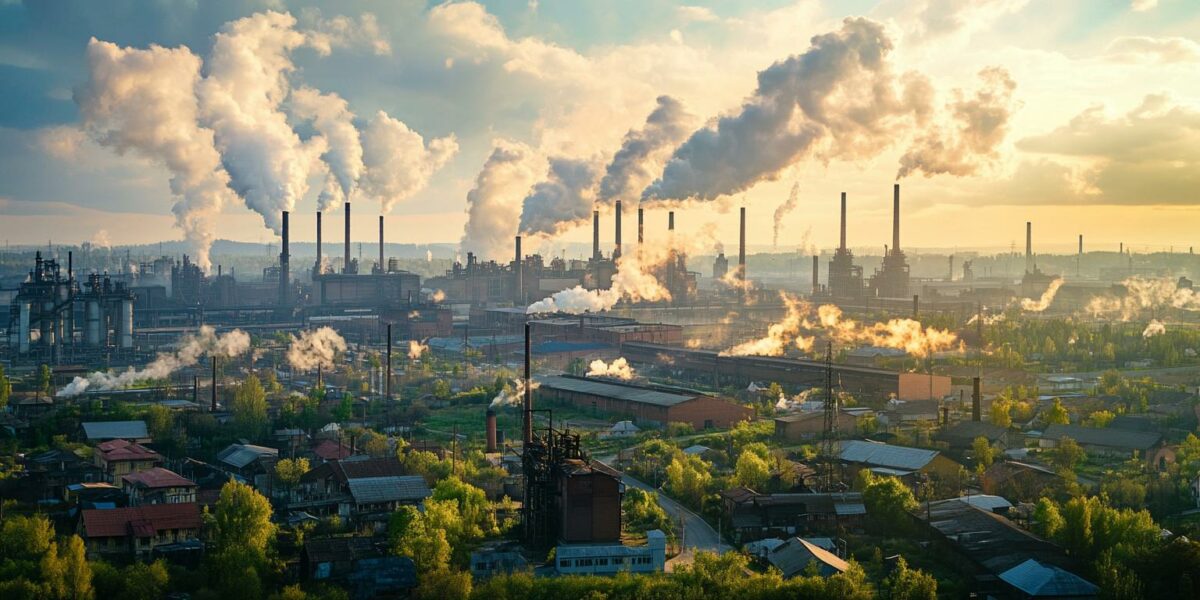The Politics of Steel
In a high-stakes battle over the future of U.S. Steel, political maneuvering has taken precedence over urgent environmental and public health concerns. President Biden and Vice President Harris have both weighed in, emphasizing the importance of keeping U.S. Steel American-owned. However, climate and health advocates argue that this focus is misplaced.
The potential sale of U.S. Steel to Nippon Steel has stirred significant debate. Environmental groups see the sale as a chance to address long-standing pollution issues, but the political discourse has largely sidelined these concerns. Instead, the focus has been on the implications for swing state voters and union workers.
The Committee on Foreign Investment in the U.S. has postponed its decision on the sale until after the 2024 election. This delay has added more uncertainty for residents living near U.S. Steel’s aging facilities, who are already grappling with severe pollution.
Roger Smith of SteelWatch described the process as “a very strange business transaction.” Residents are left wondering what their future holds, particularly in terms of health and environmental impacts.
A History of Neglect
Residents had initially hoped that new ownership could bring much-needed environmental improvements. U.S. Steel’s Clairton Coke Works, a major polluter, has long been a source of health problems in the community. Many residents suffer from asthma and other ailments linked to air pollution.
Despite numerous fines and settlements, U.S. Steel has failed to make significant environmental upgrades. The company’s commitment to “safe and environmentally responsible” steelmaking has often been questioned by local advocates.
The hope was that Nippon Steel, with its global resources, could clean up and modernize the facilities. However, the focus has shifted away from environmental concerns to political calculations and national security reviews.
Residents feel like pawns in a larger political game, as noted by Qiyam Ansari of Valley Clean Air Now. “Most folks feel like we’ve become a political bargaining chip,” he lamented.
Broken Promises
The history of broken promises is a recurring theme in the Mon Valley. U.S. Steel had once pledged significant investments to modernize its facilities, but those promises were never fulfilled. Instead, the company diverted funds to other projects.
Recent announcements from Nippon Steel about “transformative investments” have been met with skepticism. Community members and environmental advocates question whether these investments will genuinely address pollution and health issues.
United Steelworkers, the union representing many U.S. Steel workers, also feels left out of the conversation. They worry about job security and the long-term viability of the local steel industry.
- Union workers are concerned about the impact on jobs.
- Environmental advocates demand cleaner production methods.
- Residents seek assurances about health and safety.
Bernie Hall, the Steelworkers’ District 10 director, expressed distrust towards Nippon’s commitment, fearing that the promises made are “very hollow.”
Toward Decarbonization
The steel industry is a significant contributor to greenhouse gas emissions. In Pennsylvania, industrial activities are the largest source of such emissions, with U.S. Steel being a major player. Transitioning to greener methods is crucial for reducing this impact.
Experts advocate for a shift to electric arc furnaces and the use of green hydrogen. These technologies could reduce emissions by over 90 percent. However, implementing these changes requires substantial investment and political will.
Hilary Lewis of Industrious Labs emphasized the need for a collaborative approach. “We need a future where union labor is respected,” she said, advocating for investments that benefit both workers and the environment.
Despite the challenges, there is a vision for a cleaner, more sustainable steel industry. With the right investments and policies, it is possible to reduce emissions while preserving jobs and improving public health.



evan_luminary
Can we pls focus on clean air and health for once? Tired of empty promises!
taylor
Politicians playing tug-of-war while we choke on fumes. Fantastic. 🙄
Coco5
Are there any actual plans to address the pollution if the sale goes through?
ThomasTwilight2
Thank you for highlighting this issue. It’s sad to see health and climate concerns being pushed aside.
PenelopeSeraphim
Classic! Politics always finds a way to mess things up. What about the people living near those pollution factories?
WhiskersDrifter
Why is the government prioritizing the steel deal over climate and health issues? 🤔